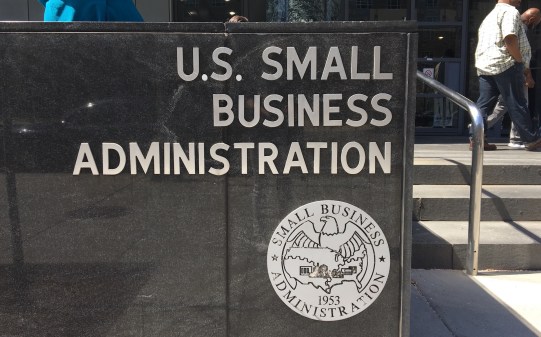 Office of Federal Procurement Policy Administrator Joseph Jordan (Photo: David Stegon/FedScoop)
Office of Federal Procurement Policy Administrator Joseph Jordan (Photo: David Stegon/FedScoop)FedScoop’s Kathryn Sadasivan co-wrote this article.
The White House Small Business Procurement Group is pushing to make senior leaders in the federal government more accountable for the small-business contracting goals set forth by the Small Business Administration.
John Shoraka, associate administrator of government contracting and business development at SBA, said Thursday program managers need to put more importance on the agency’s small-business requirements – something that occasionally gets overlooked in the pressure to get a mission completed despite the best efforts of an agency’s small-business head or director of procurement.
Shoraka said some agencies, including the departments of Defense and Veterans Affairs, have taken the message to heart by including small-business success as a metric in program managers’ reviews.
“What we’ve been able to do is get a dialogue started that small business is important,” Shoraka said at the ACT-IAC 2013 Small Business Conference held at the Grand Hyatt in Washington, D.C. “Will we see an immediate impact? It will take time, but we believe it will make a significant difference.”
Shoraka also said under the recently enacted Small Business Act, the federal government is looking to expand the contractor mentor-protégé initiative beyond just the 8(a) set-aside program.
A draft will be released this summer for agency review calling to add the mentor-protégé program to the women-owned set aside, HUBzone and veteran-owned business that qualify, he said.
The SBA Mentor-Protégé Program is designed to encourage approved mentors to provide various forms of assistance to eligible business such as technical and management assistance or financial assistance.
Update from the White House
Joe Jordan, administrator of the Office of Federal Procurement Policy at the Office of Management and Budget, said President Barack Obama’s budget proposal for the 2014 fiscal year includes a $4 million provision for SBA to hire 32 new procurement center representatives who will work strategically across the federal government to increase the share of procurement awards allotted to small businesses.
The budget is an articulation of the president’s priorities, namely small-business visibility and entrepreneurship, Jordan said. Despite an overall decrease in the SBA budget allocation, the administration committed the additional $4 million to facilitate increased collaboration between SBA, small businesses and federal agencies.
Jordan challenged small businesses to view this time of fiscal austerity as an opportunity to gain visibility within the federal government, to work collaboratively and in concert with other small businesses to demonstrate the value of small-business entrepreneurship, save the federal government money and encourage public-private partnerships.
“We are really challenging agencies to think in a new way, eliminate inefficiencies, collaborate with their CIO colleagues … acquisition is not just a small niche function,” Jordan said.
Jordan said his top procurement priorities are buying smarter, building the right supplier relationships and developing the acquisition workforce. In buying smarter, he hopes to increase the use of data analytics to drive better decision-making and better outcomes at lower prices. Jordan encouraged government agencies to be diligent in filling out past performance reports for small-business contractors to build the right supplier relationships.
Improving the recruiting, development and retention is critical to the development of the acquisition workforce. “It’s in every taxpayer’s interest to have a vibrant, intelligent, robust contracting officer workforce,” Jordan said.
Plague of small business
A number of industry representatives said small businesses without a set-aside are struggling to find work as they are not eligible for set-aside contracts and thus, have trouble partnering with larger firms. Their options, one industry executive said, are to compete head-to-head with larger businesses or look for small-business opportunities not given directly to set-asides.
Susan Truslow, procurement policy analyst at OMB, disagreed with that assessment, saying for certain procurements federal agencies must use a small-business vendor if two or more small businesses demonstrate the capability of doing the work.






